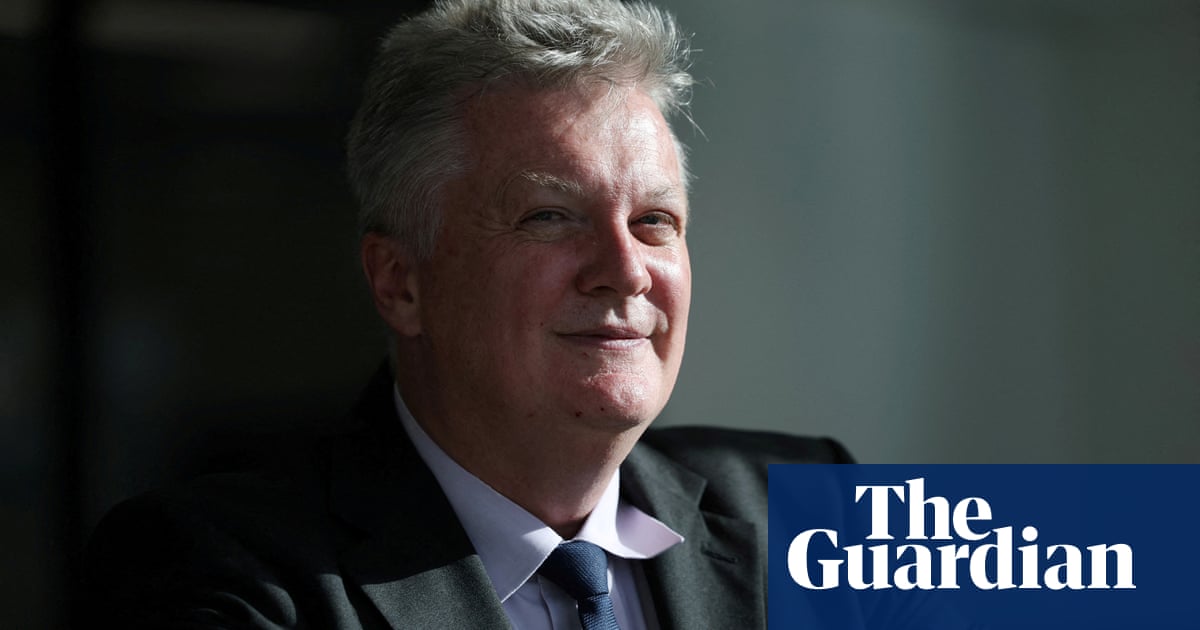
LONDON (Reuters) - Bank of England Chief Economist Andy Haldane, who has sounded the only notes of alarm about inflation among the central bank’s top policymakers, will leave the institution after more than 30 years to run a charity, the BoE said on Tuesday.
Haldane has been the most upbeat member of the BoE’s Monetary Policy Committee about the chance of a sharp economic recovery from the COVID pandemic, and in February he warned that an inflationary “tiger” might be stirring.
Sterling briefly dipped against the dollar and the euro after the news that Haldane would step down following the MPC’s June meeting.
He will start his new job in September as chief executive of the Royal Society for Arts, Manufactures and Commerce. Founded in 1754, it says it “unites people and ideas to develop practical solutions to solve the challenges of our time”.
“Markets have initially viewed it as the only major hawk leaving the committee, perhaps the only hawk at the moment,” James Smith, an economist at ING, said.
Haldane has recently likened the economy to a “coiled spring” and highlighted how a savings glut built up by richer households during the pandemic could spur a sharp recovery.
In September, just before a second wave of COVID cases derailed the economy, Haldane criticised commentators who were more doubtful about recovery for taking an overly pessimistic, “Chicken Licken”, view.
Haldane joined the BoE in 1989 direct from university and became chief economist in 2014, after serving in financial stability roles during the global financial crisis.
He was considered a candidate for governor when the job was up for grabs last year, but the role went instead to Andrew Bailey.
Haldane has taken a keen interest in the charitable sector and also headed a recently scrapped government body to suggest measures to boost businesses’ productivity.
SLOWER RATE RISES?
Kallum Pickering, an economist at Berenberg, said Haldane’s departure might make the BoE slightly slower to raise interest rates when the time comes.
“At the margin, with the absence of Haldane, the MPC may now react to any forthcoming inflation risks a little later than it otherwise would - but only by a meeting or two at the most,” Pickering said.
The BoE itself - rather than Britain’s Treasury - decides who will be chief economist. It said it would advertise for a successor to Haldane in due course.
Governor Bailey said Haldane had been “an imaginative and creative thinker on the wide range of issues the UK economy faces, as well as helping create and drive forward new ways for the Bank to engage with the public”.
Haldane has a reputation as the BoE’s most colourful speaker.
In 2012, he addressed a gathering of the anti-capitalist Occupy movement and praised it for suggesting new ways to fix the shortcomings of global finance.
A year later, he said central banks had “blown the biggest government bond bubble in history” as they stepped up their bond-buying programmes.
But he has not been uniformly hawkish, endorsing a “sledgehammer” approach to bond purchases in 2016 when the economy appeared to be entering a sharp downturn following the unexpected referendum decision to leave the European Union.
He was sceptical about the possibility of the BoE taking interest rates below zero for the first time.
Haldane had increasingly taken an interest in issues beyond pure economics.
On Monday, he led a discussion about the importance of kindness for improving mental health and he invited former international cricketers and Doreen Lawrence, an anti-racism campaigner, to similar events.
Haldane said he shared the RSA’s sense of challenges from technology to longevity, from inequality to the environment.
“Meeting these new challenges will require new thinking, new policies and new partnerships between governments, industries and civil society, working in partnership,” he said.












